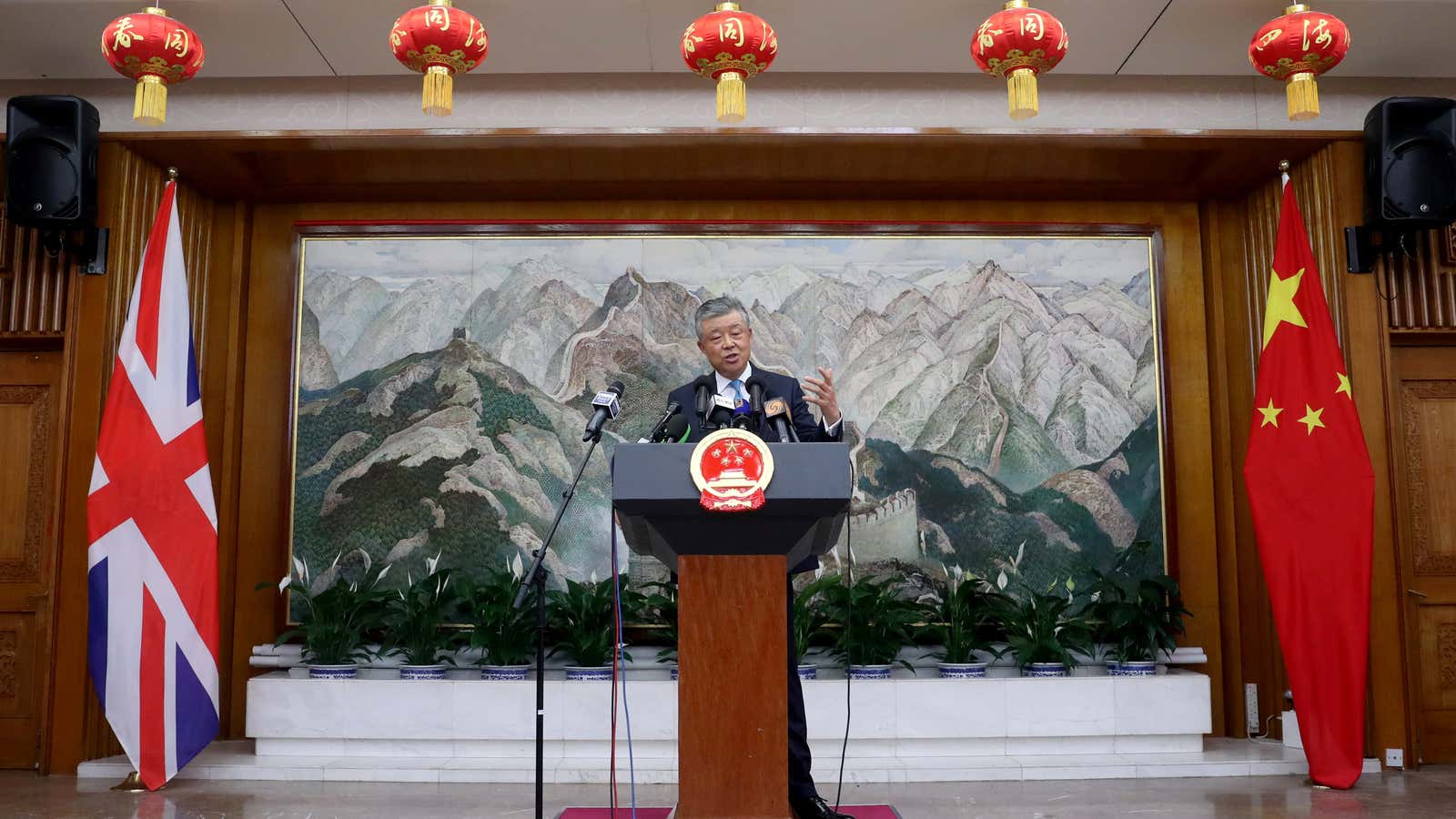Is China’s bark worse than its bite?
Officials in London may be asking themselves that question as they take stock of the UK-China relationship. Since the start of the pandemic, prime minister Boris Johnson has: sided with the US in banning Chinese tech giant Huawei from Britain’s 5G network; extended a “path” to citizenship to millions of Hong Kong residents in response to China’s imposition of a security law there; and extended an arms embargo on Hong Kong, while entertaining the possibility of sanctioning Hong Kong officials.
In response, Beijing’s ambassador to London Liu Xiaoming said the UK will “bear the consequences” if it interferes in China’s internal affairs, while the Chinese foreign ministry said that Britain’s Huawei ban “must come at a cost.”
And yet, unlike with Australia—where after prime minister Scott Morrison called for an inquiry into the origin of the coronavirus, Beijing imposed exorbitant tariffs on barley and beef imports—China hasn’t retaliated against the UK. Experts say there are three main reasons for that.
Johnson had initially allowed Huawei partial access to the UK’s 5G network, before backing down in the face of US pressure and a rebellion within his own party. Andy Mok, a senior research fellow at the Center for China and Globalization, a Beijing-based think tank, believes there is a “recognition” among Chinese officials that the British government, “had it been able to exercise complete free will, would probably have chosen a different path.” This, plus the “political goodwill” built up with London over the “golden era” of relations since 2015 could be influencing Beijing, Mok says. A recent editorial by the state-run Global Times lends credence to that theory: “The UK is not the US, nor Australia, nor Canada,” it states. “In the long run, the UK has no reason to turn against China, with the Hong Kong issue fading out.”
The global context matters too. China may be biding its time while it waits for the outcome of the US presidential election in November, says Iain Begg, a professorial research fellow at the European Institute of the London School of Economics. The Trump administration has been an important driver of anti-China sentiment in Europe in recent months.
But Steve Tsang, director of SOAS University of London’s China Institute, says Beijing is “having difficulties finding an easy way to punish [the UK] without hurting themselves.” The US is by far Britain’s largest trading partner and, while China is an increasingly important market for British goods and services, the UK doesn’t depend on it to the extent that a country like Australia does. Australia is also more of a threat, because of its loyalty to the US and role in supplying China with natural resources like coal, iron ore, and gas. Tsang believes that China will respond to the UK—it’s just a matter of when and how.
